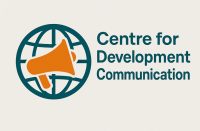Adamawa State University Journal of Scientific Research, Issue 1, 2024 Volume 12 AUTHOR: Audu Liberty Oseni
Abstract
Effective communication that will enable the people particularly the rural dwellers to better understand Climate Change issues, continues to be a challenge confronting mitigation and adaptation action. In a sample representation of estimated 141,116 populations in the Jiwa and Barangoni communities of Federal Capital Territory FCT-Abuja, north-central zone, adopted as case studies, the study examined the effectiveness of indigenous language in Climate Change communication. Using participatory communication theory and primary sources of data gathering and analysis methods through Focused Group Discussions (FGDs) and Key Informant Interviews (KIIs), the study found that using English as a language for communicating Climate Change does not lead to the locals’ understanding of Climate Change messages. This is mainly because a huge rural population does not have English literacy, but understands only Hausa and Gbagyi languages. Therefore, the study concluded that the use of English as a language of Climate Change Communication affects the rural dwellers understanding of the issues. Hence, the study recommended the use of indigenous language for effective Climate Change communication.
Keywords: Climate Change, Communication, Indigenous, Language, Communities
